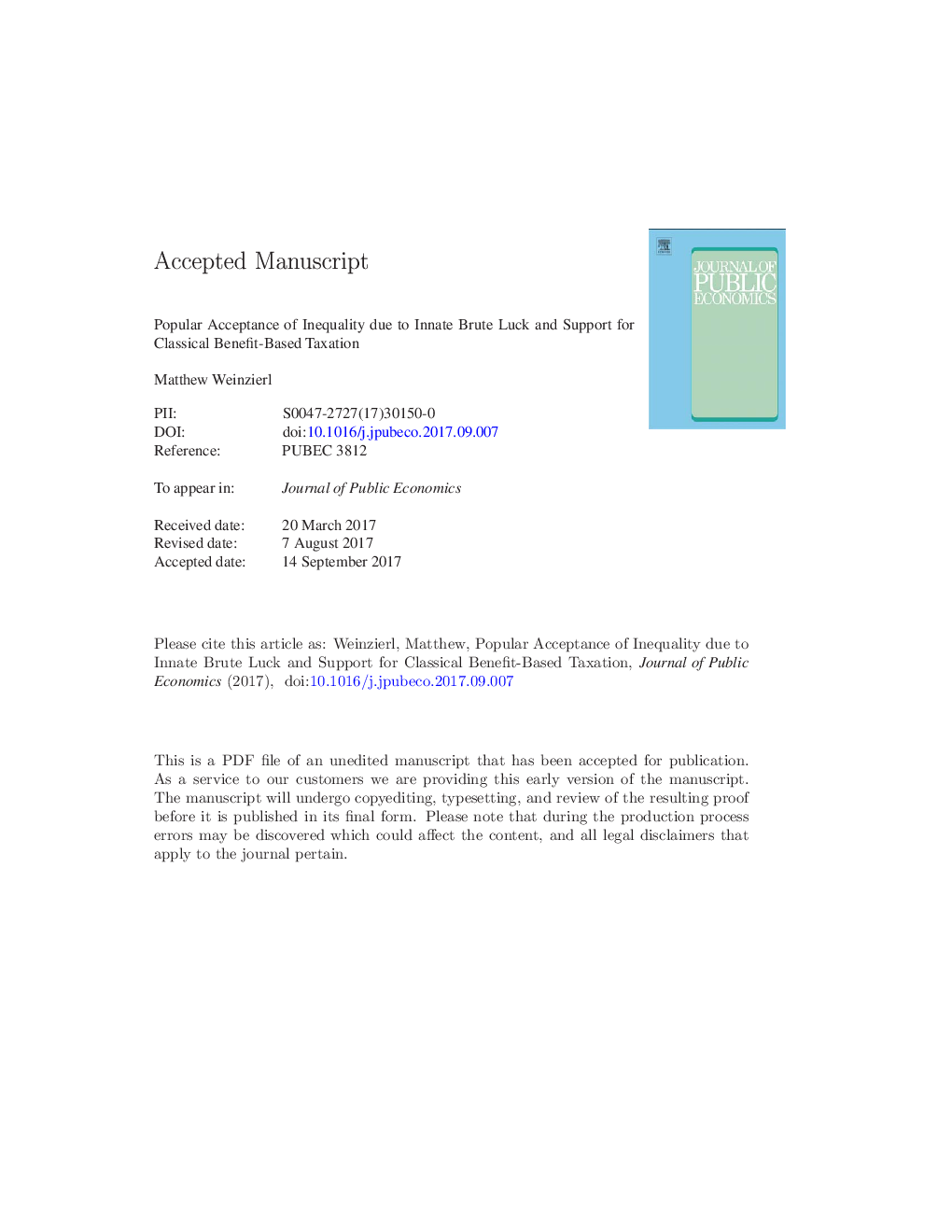| Article ID | Journal | Published Year | Pages | File Type |
|---|---|---|---|---|
| 5101743 | Journal of Public Economics | 2017 | 26 Pages |
Abstract
U.S. survey respondents' views on distributive justice differ in two specific, related ways from what is conventionally assumed in modern optimal tax research. When expressing their preferences over allocations in stylized, hypothetical scenarios meant to isolate key features of the tax problem, a large share of respondents resist the full equalization of unequal outcomes due to innate brute luck that standard analyses recommend. A similar share prefer a classical benefit-based logic for taxes over the conventional logic of diminishing marginal social welfare. Moreover, these two views are linked: respondents who more strongly resist equalization are more likely to prefer the classical benefit-based principle. Though the Amazon Mechanical Turk survey population is not a representative sample of the U.S. population, robustness of these results across demographic traits and political views suggests that a large share of the American public holds views inconsistent with standard welfarist objectives.
Keywords
Related Topics
Social Sciences and Humanities
Economics, Econometrics and Finance
Economics and Econometrics
Authors
Matthew Weinzierl,
